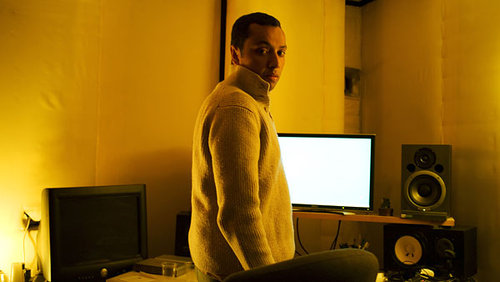U.S. rappers should be appreciative of their first ammendment rights. The only “problem”, if we can even call it that, is the abundance of blatantly biased, racist, homophobic and all around ignorant views that so many rappers engulf us with sometimes. You actually have to work to avoid that shit which is kind of annoying. Can we get a clearing house up and runinng or something? Link
Accused of “public libel against the national police,” Hamé was first acquitted in a trial court in 2004 and again in an appeals court in 2006. Then the Interior Ministry took the case to the top court of appeal, demanding that the judges annul the earlier verdict and arrange a second appeal. This time it won: In July 2007, not three months after Sarkozy had become president, the top appeals court ordered another appeals court in Versailles to rule again.
On Tuesday afternoon, a buoyant Hamé welcomed the verdict. He had risked a fine of €45,000, or $66,000, in addition to the €20,000 he has already spent in legal fees.
“It was a good moment,” Hamé said. “If we really win, it would be a victory for us but also for democracy and for freedom of speech.”
Not everyone was so optimistic.
“I fear that the government cares less about the verdict and more about the deterrent created by a lengthy court case,” said Gwénaële Calvès, a professor of law and civil liberties specialist. “They are signaling that they don’t tolerate a certain type of criticism.”
Half a dozen rappers have been sued by the Interior Ministry and politicians over the past decade, according to Hamé’s lawyer, Dominique Tricaud, who has defended most of them.
The group Ministère AMER, in the 1990s, rapped about “sacrificing a pig.” More recently, the rapper Sniper sang about his mission to “exterminate ministers and fascists.” Most of them were acquitted. But none of their cases went beyond the first appeal.
“This time is different,” said Tricaud. “It’s the first time a minister took this all the way up to the top court.”
Far from undermining La Rumeur, the case has apparently raised the group’s profile; its album sales have doubled.
“If they wanted us to shut up, it didn’t work,” said Hamé, a Sorbonne graduate who has studied cinema at New York University. “All these legal issues, all this censorship is making me want to do three times more.”
Legal specialists say this sort of libel case would be scarcely imaginable in the United States, where the First Amendment protects citizens from seditious libel suits.




